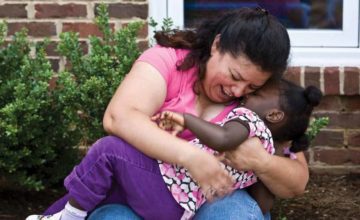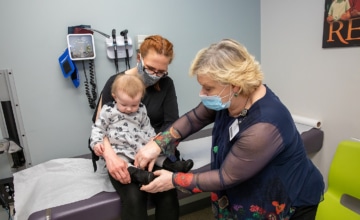This article describes Georgia’s efforts.
Georgia is utilizing American Rescue Plan Act (ARPA) resources to expand access and capacity to deliver infant and early childhood mental health (IECMH) services. These efforts build on existing work over the past several years to advance an IECMH system in the state as well as recognition that the stresses of the pandemic have exacerbated mental health challenges for children and families and created new urgency.
A study conducted by the Urban Institute in the fall of 2021 to gather stakeholder perspectives regarding needs and opportunities to support Georgia’s early care and learning system with Coronavirus Response and Relief Supplemental Appropriations Act (CRRSAA) and ARPA funding found that both parents and child care providers expressed concerns regarding children’s social-emotional needs and did not perceive available supports as adequate to meet children’s needs.
Georgia is using ARPA resources for IECMH in three key ways:
- A mental health consultation pilot is expanding access to mental health consultation in three regions across the state: Atlanta, Macon, and Savannah, which were prioritized based upon regional, ethnic, and linguistic diversity. Ten clinicians are funded through the pilot and are receiving training through the Georgetown Center for Children and Families.
- Pyramid Model training is being made available through online modules to help the early care and education (ECE) workforce develop children’s social-emotional skills, improve classroom climate, and use trauma-responsive practices.
- Access is being made to Child Parent Psychotherapy training to increase clinical capacity using a combination of ARPA and Preschool Development Grant Birth-Five funding. Sixty clinicians are participating, with clinicians serving historically marginalized communities and accepting Medicaid-prioritized children.
Child Care
Georgia is also lifting up the needs of infants and toddlers in the child care space. The state is planning to expand incentives for infant-toddler educators currently in the field as well as planning for the development of enhanced education pathways for infant toddler teachers to increase the long-term supply of infant toddler educators. More information about ARPA activities in Georgia, including those related to child care, can be found HERE.
Navigating Challenges
As is the case across states, Georgia navigated a variety of challenges related to the implementation of ARPA activities. State agency capacity is a significant challenge and is exacerbated by the temporary nature of the funding. The timeline has also been a challenge, requiring a careful balancing of taking the time to meaningfully engage stakeholders and engage in thoughtful planning while also needing to get the dollars out quickly. Finally, significant questions remain regarding sustainability and the sector’s stability once ARPA resources end.
Additional ARPA Resources
Interested in learning more about how states are using ARPA to support babies? Visit our landing page to read the summary brief, States are Leveraging ARPA to Move the Needle for Infants and Toddlers, and the full series of state articles (featuring Alaska, Arizona, Colorado, Georgia, Minnesota, Tennessee, Washington and Wisconsin).




